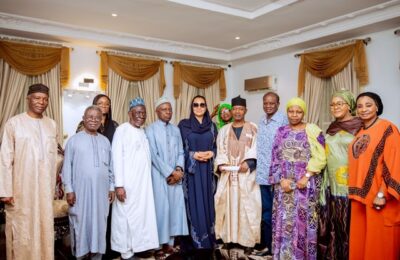Senator Ted Cruz and commentator Bill Maher have both recently accused Islamist groups in Nigeria of carrying out a “Christian genocide.” Those claims — which include large fatality and destruction figures — have stirred outrage and revived a familiar, but dangerous, narrative: that the violence is aimed exclusively at Christians. The reality is more complicated, and smoothing over that complexity does a real disservice to victims of all backgrounds.
In a post on X, Senator Cruz wrote that “since 2009, over 50,000 Christians in Nigeria have been massacred, and over 18,000 churches and 2,000 Christian schools have been destroyed.” Around the same time Bill Maher said on his show that more than 100,000 Christians had been killed and tens of thousands of churches burned — framing the crisis as a targeted attempt to wipe out Nigeria’s Christian population. 
It’s understandable why such declarations gain traction: they’re simple, dramatic, and easy to share. But the facts on the ground are messier. Nigeria’s insecurity is driven by multiple, overlapping dynamics — Boko Haram and other jihadist groups in the northeast, farmer–herder clashes across the Middle Belt, criminal banditry, and local communal disputes. These forms of violence frequently cut across religious lines. The Nigerian government and many local voices have pushed back on claims that the killings are exclusively anti-Christian, calling such framing misleading and inflammatory. 
Concrete examples underline that cruelty does not always follow religious lines. Attacks by armed groups have targeted mosques and Muslim communities as well as churches; farmers and herders — both Muslim and Christian — have been killed in communal clashes; and thousands of people from both faiths have been displaced into IDP camps. To reduce this catalogue of suffering to a single label — “Christian genocide” — flattens the complexity and can politicize grief. 
That said, naming and counting matters. If people — Christian, Muslim, or otherwise — are being systematically targeted, that should be investigated and addressed. Many Nigerians and international observers rightly demand accountability, stronger security measures, and better protection for vulnerable communities. Some lawmakers, including Cruz, are pressing for measures aimed at holding officials accountable and putting pressure on actors who may enable violence; others argue that external actors should tread carefully so as not to inflame tensions or oversimplify causes. 
The better path is honest nuance. Recognize the real and devastating losses suffered by communities across Nigeria. Call out and condemn terrorists and criminal networks wherever they strike. Resist simplistic, headline-friendly labels that assign blame to entire faiths or communities. And insist on policies and international responses that pursue facts, support victims, and help restore security — without turning grief into propaganda.
– Suleiman Lawal
ernesthollowayernest@gmail.com




